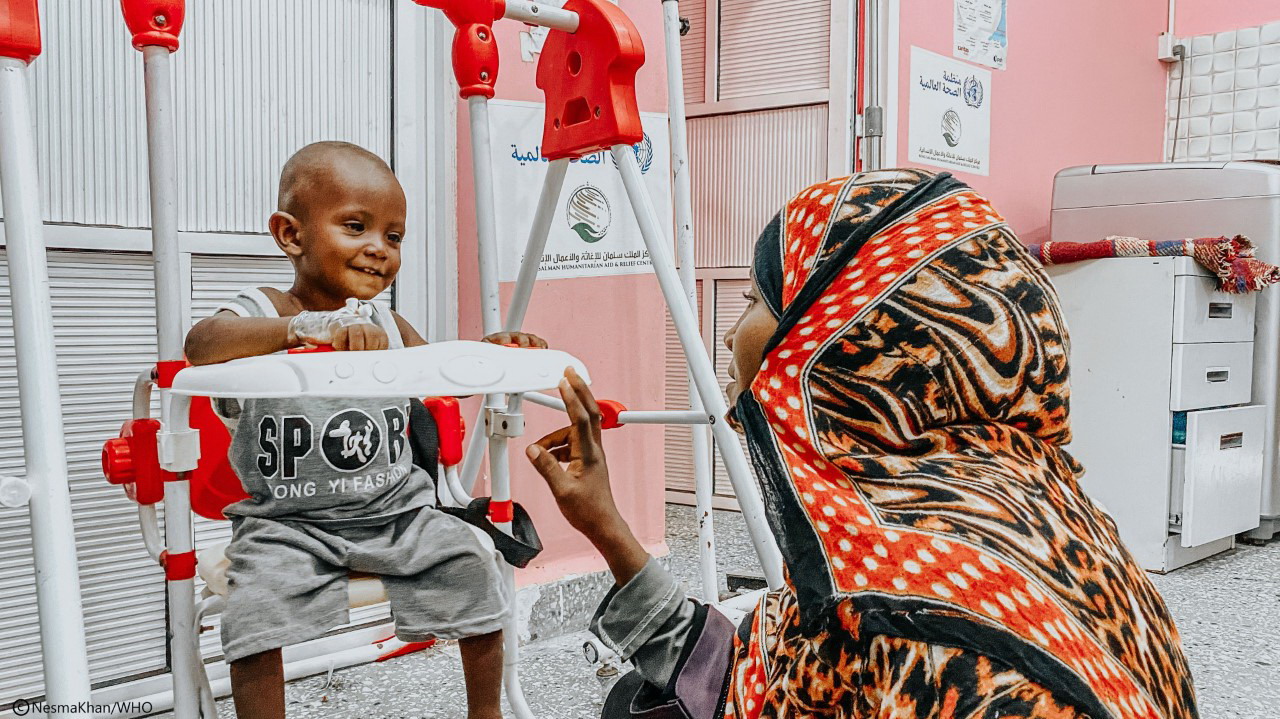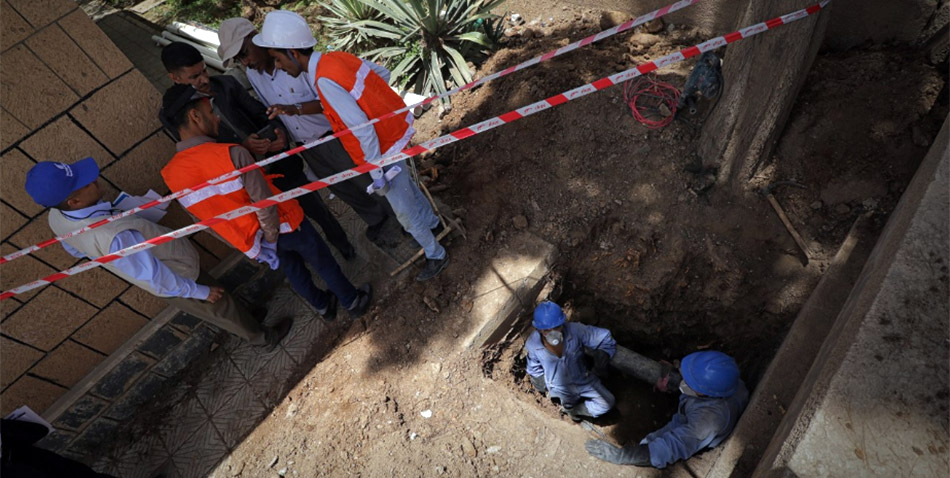Note to correspondents
Sana'a, 19 January 2021 - The World Health Organization (WHO) office in Yemen denies what has been reported in local media about its intention to stop its support to Yemen's health facilities with the fuel needed to operate them.
The office confirms that despite severe funding shortages, the necessary financial resources have been mobilized already to supply all 105 health facilities supported in 2020 with fuel until mid-February at least. Furthermore, 42 health facilities, most of them in the northern governorates of Yemen, will be provided with the needed fuel during the remainder of the year.
The office continues to discuss with donor partners ways to provide fuel for the remaining health facilities. At the same time, it is looking with health authorities into all funding scenarios, their potential implications and available options to ensure the continuity of this vital support for health facilities across Yemen.
WHO and KSrelief continue fight against child malnutrition in Yemen

Cairo, 18 January 2021 – The World Health Organization (WHO) and the King Salman Humanitarian Aid and Relief Centre (KSrelief) are continuing their joint fight against child malnutrition in Yemen by sustaining essential nutrition services and enhancing access to life-saving interventions for the most vulnerable populations.
Funded at US$ 5.5 million, the new partnership aims to treat 23 428 under-5 severely malnourished children with medical complications free of charge in 90 targeted therapeutic feeding centres across Yemen. Admission kits and water, sanitation and hygiene (WASH) kits will be dispatched to support the care of children admitted and their caregivers who will also receive nutrition counselling, making the total number of direct beneficiaries of the project 46 857 people.
The project targets all governorates classified at levels 3 (crisis) and 4 (emergency) according to the 2019 Integrated Food Security Phase Classification (IPC). Priority will be given to 226 districts identified at high risk by the Nutrition Cluster, based on the most updated evidence and the IPC findings for 2020, because of their high levels of food insecurity, high population density, and vulnerable internally displaced and refugee populations.
The project will rehabilitate 45 out of the 90 therapeutic feeding centres while establishing 13 new centres to enhance access to treatment and health services in districts where acute malnutrition is a public health concern. A total of 1400 health workers will be skilled to ensure high quality services.
“Thanks to the generous contributions of KSrelief, WHO will be able to provide these children with much needed, often life-saving assistance. The timely support is particularly welcome as Yemen faces unprecedented child malnutrition levels,” said Dr Adham Ismail, WHO Representative in Yemen.
The long-lasting support aims to benefit over 4.5 million children under 5 in the upcoming years, including children living in areas surrounding the targeted therapeutic feeding centres.
The partnership is part of a broader US$ 46 million agreement between WHO and KSrelief, signed in September 2020, that also included 3 other projects on COVID-19 preparedness and response, WASH, and the delivery of essential health services.
KSrelief was the main funding partner of WHO Yemen in 2019–2020. Since October 2019, the partnership between the two organizations has helped preserve Yemen's health system, including through support to the most vulnerable. Continuous support from KSrelief has allowed WHO to facilitate the provision of life-saving medicines, including treatment for patients with chronic, life-threatening conditions, such as cancer and kidney failure. The partnership has also supported maternal and child health, including assistance to pregnant women for safe birth deliveries.
WHO and KSrelief work together to improve water, sanitation and hygiene services in Yemen

Cairo, 5 January 2021- The World Health Organization (WHO) and the King Salman Humanitarian Aid and Relief Centre (KSrelief) are working together to improve water, sanitation and hygiene (WASH) services in targeted health facilities and water quality monitoring and surveillance in cholera high-risk districts.
Through a new US$ 7 million award, a joint project will provide improved access and enhanced provision of water, sanitation and hygiene services to 45 health care facilities all over Yemen which had been identified with the most acute needs by the Health Cluster and the 2020 Humanitarian Response Plan.
Improved and safe management of health care waste practices will be implemented in 117 health facilities and 100 diarrhoea treatment centres to prevent bloodborne and hospital-acquired infections, including COVID-19.
Water quality surveillance will be conducted with the provision of potable water quality testing kits in 33 cholera high-risk districts. Three regional water quality testing laboratories will be established in vulnerable areas to ensure the availability of a safe water supply.
"Improved WASH services at the hospital level will allow the functionality of preventative health programmes, including newborn care, elimination of childhood pneumonia and diarrhoea and control of cholera," said Dr Adham Ismail, WHO Representative in Yemen.
"Through strengthening infection control practices and training health care personnel on safe waste management practices, the project will help enhance safe and environmentally sound management of health care waste and prevent adverse health and environmental impacts," he added.
Overall, the project will benefit over 653 000 people in priority cholera high-risk districts across Yemen.
The partnership is part of a broader US$ 46 million agreement between the 2 organizations, signed in September 2020, that also included 3 other projects on COVID-19 preparedness and response, nutrition, and the delivery of essential health services.
KSrelief has been the main funding partner of WHO Yemen in 2019–2020. Since October 2019, the partnership between the 2 organizations has helped preserve Yemen's health system, including through support to the most vulnerable. Continuous support from KSrelief has allowed WHO to facilitate the provision of life-saving medicines, including treatment for patients with chronic, life-threatening conditions, such as kidney failure. The partnership has also supported child immunization programmes and assistance to pregnant women for safe birth deliveries.
Note to correspondants
Sana'a, 21 December 2020 - The World Health Organization country office in Yemen denies what has been reported in local Yemeni media about the Organization's refusal to transfer abroad for treatment siamese twins that are currently being treated in a hospital in Sana'a.
The office calls on all media to be responsible, credible and accurate when reporting the news.








